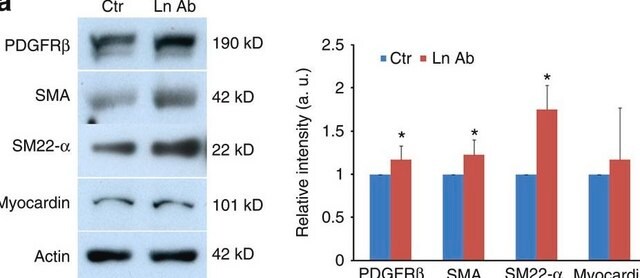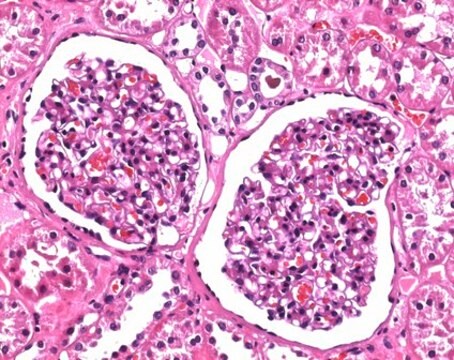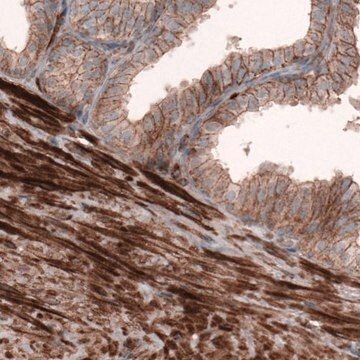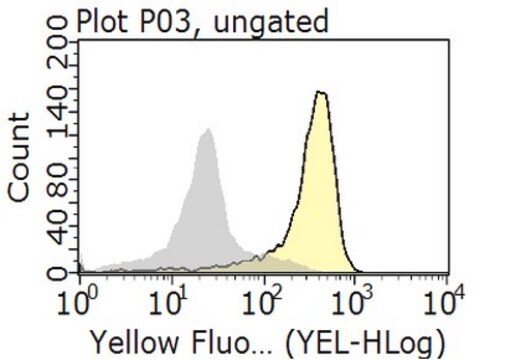ABT28
Anti-Autotaxin Antibody
from rabbit, purified by affinity chromatography
Sinônimo(s):
Ectonucleotide pyrophosphatase/phosphodiesterase family member 2, E-NPP 2, Autotaxin, Extracellular lysophospholipase D, LysoPLD
About This Item
Produtos recomendados
fonte biológica
rabbit
Nível de qualidade
forma do anticorpo
affinity isolated antibody
tipo de produto de anticorpo
primary antibodies
clone
polyclonal
purificado por
affinity chromatography
reatividade de espécies
human
reatividade da espécie (prevista por homologia)
canine (based on 100% sequence homology), mouse (based on 100% sequence homology), bovine (based on 100% sequence homology), rat (based on 100% sequence homology)
técnica(s)
immunohistochemistry: suitable (paraffin)
western blot: suitable
nº de adesão NCBI
nº de adesão UniProt
Condições de expedição
wet ice
modificação pós-traducional do alvo
unmodified
Informações sobre genes
human ... ENPP2(5168)
Descrição geral
Especificidade
Imunogênio
Aplicação
Immunohistochemistry Analysis: A 1:400 dilution from a representative lot detected Autotaxin in human cerebral cortex and ductal carcinoma tissues.
Qualidade
Western Blot Analysis: 0.5 µg/mL of this antibody detected Autotaxin in 10 µg of oligodendrocyte precursor cell lysate. Western Blot performed without Tween.
Descrição-alvo
3 isoforms are produced by alternative splicing with molecular weights of 99, 105, and 101 kDa The calculated molecular weight of this protein is 99 kDa, but can be observed at ~125 kDa due to high glycosylation. An uncharacterized band may appear at ~35 kDa in some lysates.
Nota de análise
Oligodendrocyte precursor cell lysate
Outras notas
Não está encontrando o produto certo?
Experimente o nosso Ferramenta de seleção de produtos.
Código de classe de armazenamento
12 - Non Combustible Liquids
Classe de risco de água (WGK)
WGK 1
Ponto de fulgor (°F)
Not applicable
Ponto de fulgor (°C)
Not applicable
Certificados de análise (COA)
Busque Certificados de análise (COA) digitando o Número do Lote do produto. Os números de lote e remessa podem ser encontrados no rótulo de um produto após a palavra “Lot” ou “Batch”.
Já possui este produto?
Encontre a documentação dos produtos que você adquiriu recentemente na biblioteca de documentos.
Nossa equipe de cientistas tem experiência em todas as áreas de pesquisa, incluindo Life Sciences, ciência de materiais, síntese química, cromatografia, química analítica e muitas outras.
Entre em contato com a assistência técnica








